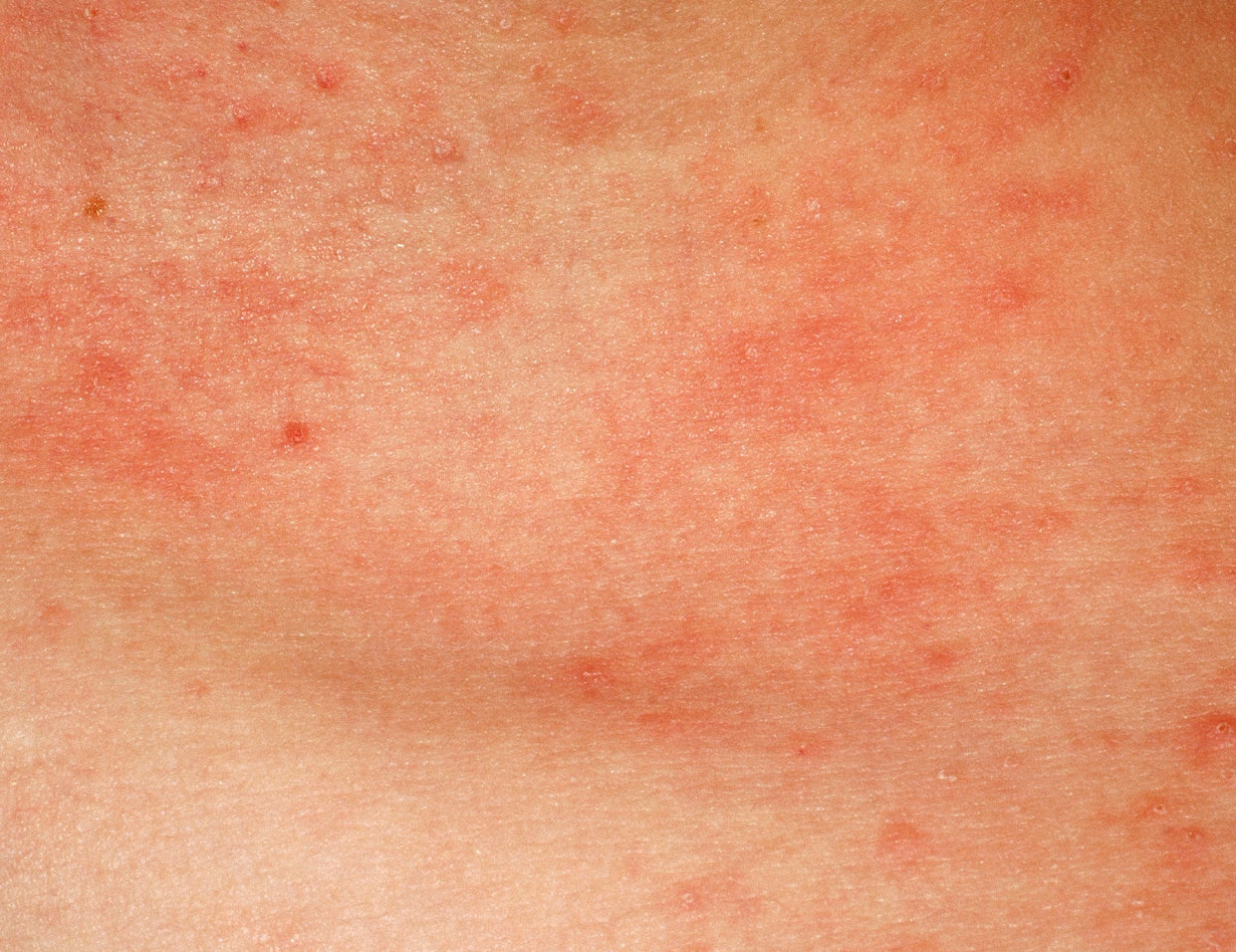Understanding Sensitive Skin
Sensitive skin is a type that reacts easily to various external and internal factors, often resulting in irritation or inflammation. Common symptoms include redness, itching, burning, stinging sensations, dryness, flakiness, and rash-like bumps. Those with sensitive skin may also experience allergic reactions and feel tight or uncomfortable after using certain skincare or cosmetic products. In some cases, sensitive skin can be due to underlying medical conditions or genetic factors.
How To Know if You Have Sensitive Skin
Recognizing sensitive skin can be challenging as symptoms vary among individuals. Common indicators include redness, itching, stinging, burning, or dryness when using certain skincare products or when exposed to environmental factors like wind, sun, or cold temperatures. Sensitive skin usually reacts more intensely to products or environmental factors that do not typically cause a reaction in other skin types. Age, hormonal changes, and stress can also influence skin sensitivity, so monitoring your skin's response to different stimuli is crucial in determining if you have sensitive skin.
While some individuals may have true sensitive skin, there are instances when the skin is sensitized due to environmental or external triggers. This is independent of genes and skin type and is temporary. The symptoms of sensitive skin vs sensitized skin are similar but sensitized skin can be addressed easier due to it being a temporary state.
Characteristics of Sensitive Skin
Sensitive skin often exhibits redness, dryness, or flakiness, and may be more prone to itching or burning sensations. Sensitive skin reacts with unpleasant sensations in response to stimuli that would not normally impact the skin. It can react more severely to certain skincare products or environmental factors, leading to irritation or inflammation. Sensitive skin often has decreased skin lipids, ceramides, and stratum corneum hydration. Sensitive skin is different from an allergic or sensitization reaction to an ingredient or product, once again that is a temporary state remedied by avoiding the use of said ingredient or product. Your dermatologist can help you diagnose if you have sensitive skin. This can help you make informed decisions when selecting skincare products and managing exposure to potential irritants.
Texture of Sensitive Skin
Sensitive skin can display various textures, generally being more fragile. It may appear dry, flaky, rough with flare-ups of redness or breakouts. Redness and blotchiness are common, particularly in response to environmental factors or certain skincare products. Sensitive skin may also exhibit itching or burning sensations, resulting from exposure to irritants, causing inflammation or irritation, and possibly leading to a rough or bumpy texture or the development of rashes or hives.
Causes of Sensitive Skin
Sensitive skin results from genetics and hormonal imbalances and can be exacerbated by environmental factors like pollution and weather changes, aging, diet and stress. Hormonal changes during puberty, pregnancy, and menopause can also affect skin sensitivity. External factors such as harsh chemicals, fragrances, and weather conditions like cold and dryness can contribute to skin sensitivity. The pathology of sensitive skin is not well understood but it is believed that sensitive skin is caused by overactivity of the skin’s nervous system which involves sensory receptors. The face has a higher density of nerve endings than most of the body which explains why the face is often the site of skin sensitivity.
Caring for Sensitive Skin
To care for sensitive skin, the general recommendation is to adopt a more gentle and minimal skincare approach and avoid potential irritants. Use mild, fragrance-free products and steer clear of ingredients that may trigger a reaction. Select products that support the skin barrier, which will keep moisture in the skin and irritants out. Regularly moisturize and protect the skin from the sun. Patch test new products before use and avoid over-exfoliation or scrubbing the skin too vigorously to prevent irritation.
Sensitive Skin Type Skincare Routine:
Step 1: Cleanse The skin should always be cleansed before going to bed in order to remove excess sebum, makeup, sunscreen, and pollution. Skipping cleansing can cause irritation to sensitive skin. A double cleanse is advised as an oil based cleanser can remove stubborn products like sunscreen and makeup while providing sacrificial oil for the second cleanse. For your second cleanser select a gentle cream cleanser or a cleanser containing humectants like glycerin and betaine to prevent over-drying. Cleansing can be done in the morning if needed or gently wiped with water and a washcloth.
Step 2: Exfoliate This should only be done sparingly, once a week, with a gentle chemical exfoliant. This can remove built up dead skin cells evening texture and tone while improving penetration of your skincare products. Always patch test upon first use to assess skin tolerability of the product.
Step 3: Moisturize Since sensitive skin is often associated with an impaired skin barrier and dryness, it is advised to apply a moisturizer day and night. Look for moisturizers that contain both humectants such as beta glucan or glycerin as well as occlusives such as ceramides or petrolatum. A last step ointment or facial oil at night can help seal in moisture.
Step 4: Sun Protection During the day it is recommended to apply as a last step a broad-spectrum sunscreen with a minimum of SPF 30. Your sunscreen should provide protection against both UVA and UVB rays. A mineral based sunscreen can be more tolerated for sensitive skin types.
DISCLAIMER: All skin care articles are intended to help educate on specific ingredients and skin care topics. Our articles are written to be informative and informational. Any reference to a specific patient experience is not a medical suggestion for treatment. Please note that any Prequel products with referenced ingredients are formulated for Cosmetic Use Only and NOT intended as replacements for physician advice and/or pharmaceutical product recommendations.




